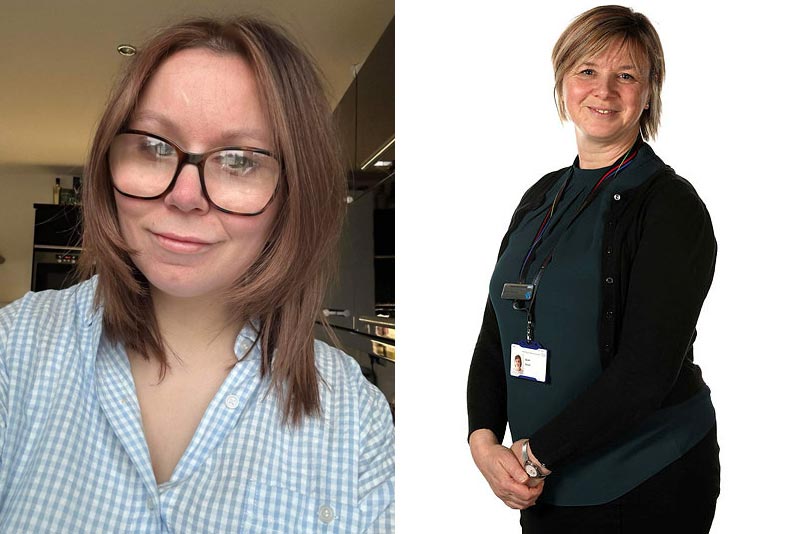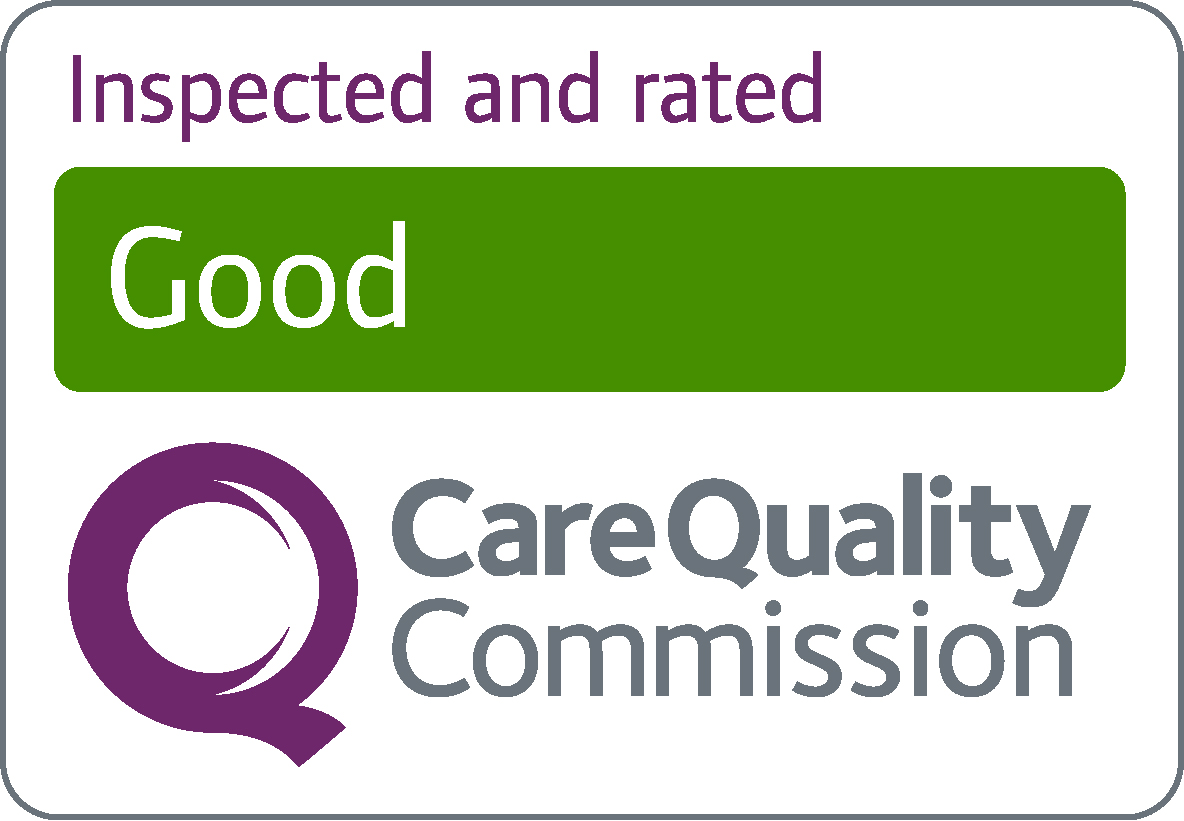RWT to run ground-breaking NHS cancer vaccine programme
Date of release: 9 July 2024
Cancer patients in Wolverhampton will be able to try out personalised ‘vaccines’ following the launch of a ground-breaking NHS trial “matchmaking” service to help find new life-saving treatments.

Patient Jane McIvor (left) and Sarah Glover
The Royal Wolverhampton NHS Trust (RWT) is one of 30 hospital Trusts in England signed up to the pioneering clinical trial. It is part of NHS England’s new Cancer Vaccine Launch Pad (CVLP) – one of the biggest projects of its kind in the world.
The NHS recently announced it had treated its first patient in England with a personalised vaccine against their bowel cancer.
Thousands of patients are expected to benefit from CVLP, which will enable those wanting to participate in clinical trials to be fast-tracked to one of the nearest participating hospitals.
RWT is aiming to refer two patients per month. The first RWT patient to be invited to take part was Jane McIvor from Wolverhampton, after she had bowel cancer.
The mum of two, 32, had a tumour removed in April. The convenience store manager is now undergoing eight cycles of chemotherapy via oral tablets over six months.
Jane was sent for blood tests to see if she was suitable for the vaccine but the results came back all clear, so she won’t need it.
“The vaccine trial was explained to me at my Oncology appointment,” said Jane. “It seemed a good thing to help other people and I thought ‘I’ve got nothing to lose’.”
Sarah Glover, Research and Development Directorate Manager at RWT, said: “I am proud RWT is taking part in the CVLP.
“This is an exciting and innovative programme which enhances the Trust’s clinical research portfolio, offering opportunities for patients in our community to take part in groundbreaking trials for cancer treatment.”
Branko Perunovic, Chief Medical Officer at Black Country Pathology Services, said: “With our fully consolidated Cellular Pathology service, we are one of only two thriving Pathology networks in England and host the first Cellular Pathology Genomic Centre in the Midlands.
“We are ideally positioned to support and future-proof RWT with this groundbreaking research programme.
“Our entire team is looking forward to collaborating with the clinical research community to advance innovative healthcare solutions for patients in the Black Country.”
In a national first, father-of-four Elliot Phebve received the developmental jab at University Hospitals Birmingham NHS Foundation Trust, one of several sites taking part in the colorectal cancer vaccine trial sponsored by BioNTech SE.
German biotechnology company BioNTech SE has presented data on how measuring circulating tumour DNA could potentially help early detection of colorectal cancer.
Patients who meet a clinical trial’s eligibility criteria can be referred to their nearest participating NHS site, making it easier than ever to take part in groundbreaking research.
The investigational cancer vaccines evaluated in the colorectal cancer trial are based on mRNA technology and are created by analysing a patient’s tumour to identify mutations specific to their own cancer.
Using this information, medics then create an experimental individualised cancer vaccine.
The developmental vaccines are designed to induce an immune response that may prevent cancer from returning after surgery on the primary tumour, by stimulating the patient’s immune system to specifically recognise and potentially destroy any remaining cancer cells.
The investigational cancer vaccines being jointly developed by biopharmaceutical companies BioNTech and Genentech are still undergoing trials and have not yet been approved by regulators.
Last year, the government signed an agreement with BioNTech to provide up to 10,000 patients with precision cancer immunotherapies by 2030.
The vaccines being tested as part of the trials aim to help patients with different types of cancer and, if successfully developed, researched and approved, cancer vaccines could become part of standard care.
ENDS
- For further information, please call Tim Nash on 07714 741097 or email tim.nash2@nhs.net

